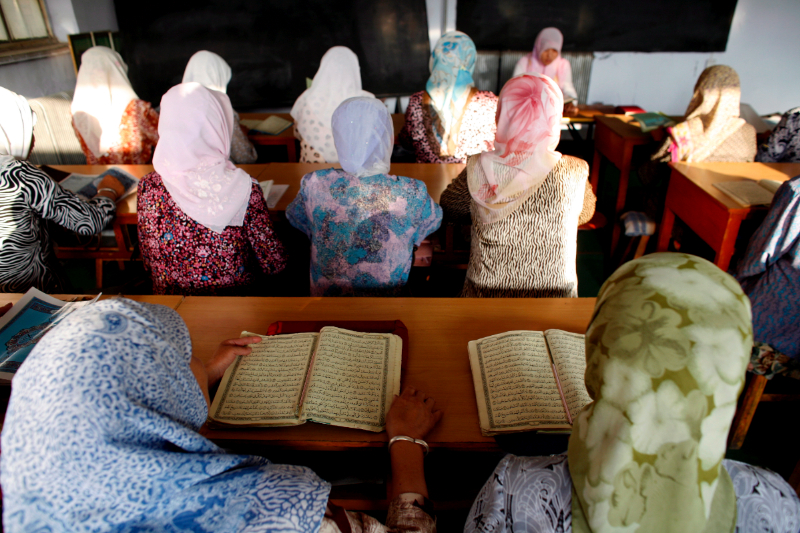
Reports of sexual exploitation coming from educational institutions has become a rampant phenomenon in recent years. Reports coming in from the madrasas of Bangladesh where children are exposed to ‘rampant sexual abuse’ by teachers and older pupils, points towards a grave societal crisis of our times.
Concern over this rising trend is growing in Bangladesh. It is in this context that many students from Bangladesh are coming out with stories of sexual abuse in madrasas. These students have taken to social media and made detailed allegations of the ‘rampant’ sexual abuse taking place in the madrasas of Bangladesh.
The students have made it clear that the sexual abuse of children by teachers and older pupils in Islamic schools has been taking place for generations but nobody has thus far dared to speak up against it.
The tragic thing is that sexual abuse has remained largely unreported from the madrasas in Bangladesh and this perhaps allowed the situation to become worse over time.
In the wake of the brutal murder of a teenage girl who had been burnt to death in April this year, after she was sexually abused by the head teacher of a madrasa, some students have come out in the open and spoken about this social evil.
In the month of July, five madrasa teachers were booked and arrested for repeatedly abusing girls and boys of their institutions for sexual pleasure. It was not long ago that several senior pupils of a madrasa were held for raping and beheading an eleven year old girl.
The involvement of a senior cleric from Dhaka who was also a teacher at a well-known seminary in sexually assaulting a dozen boys in the age group of 12-19 years also shocked the world.
The accusations that have been put forward by the students who have now come forward to complain about the sexual assault, reveal how most of the children who undergo such brutal experiences at the madrasas belong to economically disadvantaged backgrounds. The cost of schooling at a madrasa is much less than the fees a parent would be required to pay for sending her child to a so-called secular/public school. Therefore, for many parents belonging to the economically disadvantaged groups madrasas constitute the sole options for getting their children educated.
Gender rights activists working in Bangladesh allege that the cases of sexual abuse in madrasas are so rampant that the few that are being reported in the media can be just seen as the tips of an underlying iceberg.
The head of Shishu Odhikar Forum(Bangladesh’s leading Child Rights’ group) Abdus Shahid asserted that the reason why the cases of sexual assault taking place in Bangladeshi madrasas have gone unnoticed, is because it is seen as a sensitive subject and often considered a social taboo. Speaking up against the wrongs that are taking place in the madrasas is often considered as disloyalty to one’s religion.
A student from Bangladesh who completed his schooling from three different madrasas in Bangladesh, took to social media and expressed his agony.
Hojaifa al Mamduh studied in Dhaka and published a series of posts on Facebook in July detailing the abuses that students like him underwent. He posted“Many madrasa teachers I know consider sex with children a lesser crime than consensual extramarital sex with women. Since they live in the same dormitories, the perpetrators can really hide their crimes and put pressure on their poor students to keep mum.”
His posts generated heated debate and he received death threats from clerics and madrasas around him. They even went on to call him a ‘christian agent’ and accused him of defaming Islamic practices.
It is tragic that with the rise in cases of sexual abuse taking place in the madrasas of Bangladesh, many parents are now scared to send their children to such institutions.
The hostility of the social scenario often makes it difficult for victims to come out and express themselves in the open and this in turn encourages the culture of sexual offence to amplify over time.
It is the need of the hour to conduct an exhaustive scrutiny against the perpetrators of crimes against children and create an ecosystem where children are not only protected from exploitation but also encouraged to speak up against any form of injustice that may be perpetrated against them.













